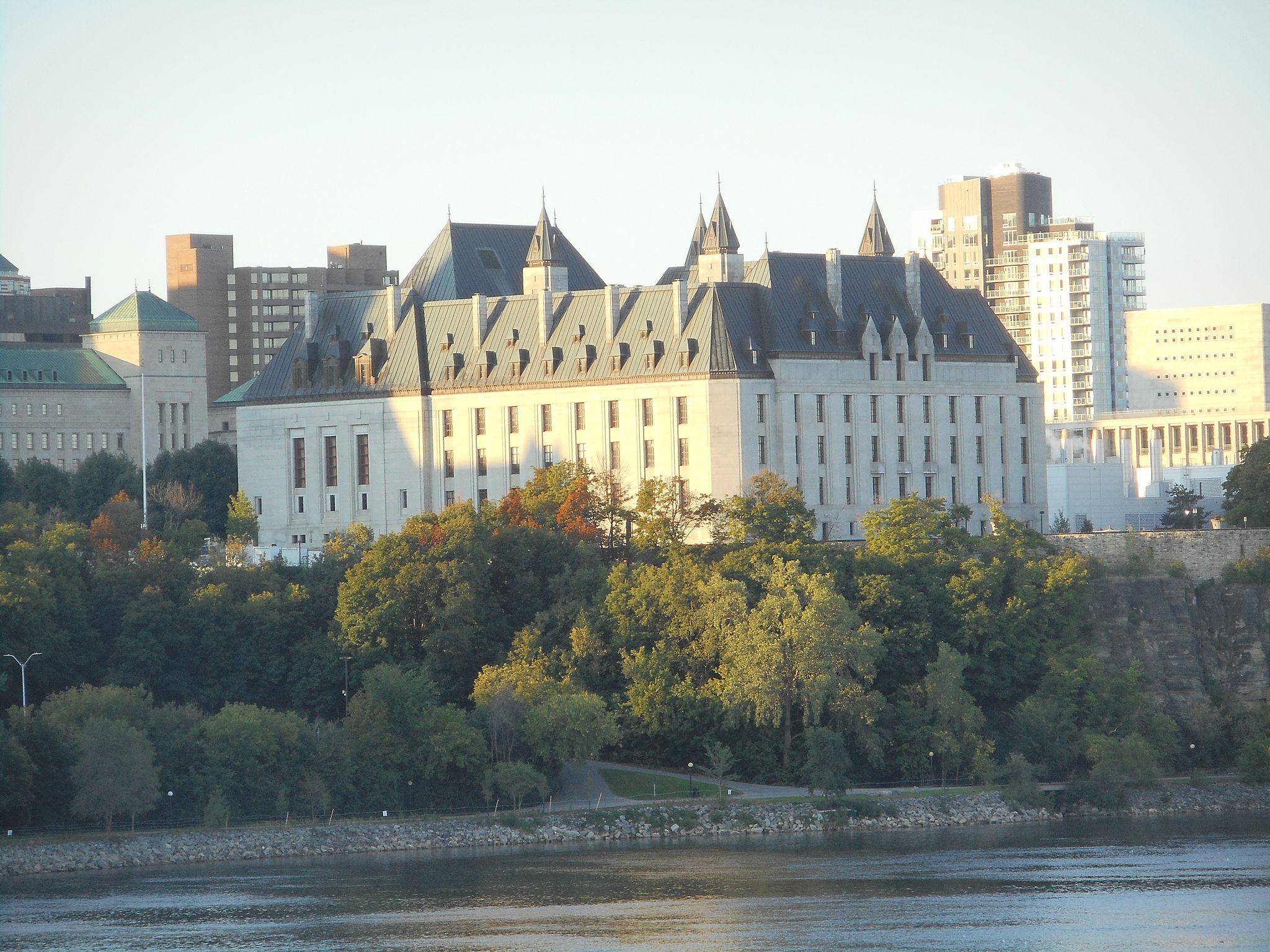Nicholas Kasirer, FRSC, lawyer, professor, author, justice of the Court of Appeal of Quebec, justice of the Supreme Court of Canada (born 2 February 1960, in Montreal, QC). Nicholas Kasirer is a bilingual former law professor who is well-versed in both civil law and common law. He has been one of three Quebec justices on the Supreme Court of Canada since 16 September 2019. Kasirer previously served on the Court of Appeal of Quebec. He has been published widely on many aspects of the law. He was also dean of McGill University’s Faculty of Law from 2003 to 2009.

Family and Education
Nicholas Kasirer was born and raised in Montreal. His mother was Patricia Heeney. His father, Paul, was a medical doctor. Nicholas’s grandfather was Arnold Heeney. He served as Prime Minister Mackenzie King’s clerk to the Privy Council and secretary to Cabinet. He was also Canada’s ambassador to the United States and to NATO.
In 1978, Kasirer graduated from Marianopolis College, a private English-language school in Westmount, with a diploma of college studies (social sciences). In 1981, the fluently bilingual Kasirer earned a Bachelor of Arts (honours) in economics and political science from the University of Toronto. He received a Bachelor of Civil Law and a Bachelor of Laws at McGill University in 1985. Kasirer completed a post-graduate Diploma of Advanced Studies in International Law at Université Paris I Panthéon-Sorbonne in 1986. He returned home to clerk for Supreme Court justice Jean Beetz and passed the Quebec bar in 1987.
Kasirer married Jane Mappin, a respected dancer and choreographer. They have three children together.

Academic Career
In 1989, Nicholas Kasirer became a professor at McGill University’s Faculty of Law. He taught civil and common law at McGill. He was also a visiting professor at Université Paris I Panthéon-Sorbonne and a guest researcher at Université de Montréal. From 1996 to 2003, Kasirer was the director of the Paul-André Crépeau Centre for Private and Comparative Law. He was also dean of McGill’s Faculty of Law from 2003 to 2009.
Kasirer has published numerous books, chapters and articles on a host of legal topics. He also served on the editorial committees of law journals at McGill University, Louisiana State University, Université de Sherbrooke, the Revue internationale de droit comparé in Paris and Italy’s ISAIDAT Law Review of Turin. He was co-author and secretary of the editorial committee of the Private Law Dictionary and co-editor of The Critical Edition of the Civil Code of Québec.
Judge
In July 2009, Kasirer was appointed to the Court of Appeal of Quebec, the province’s highest court. Over the next decade, he worked on roughly 2,000 cases. Among the most significant was that of a seven-year-old who was injured while taking skiing lessons (Stations de la vallée de St-Sauveur inc. c. M.A., 2010 QCCA 1509). Kasirer’s dismissal of the ski resort’s appeal offered a complex interpretation of civil law liability and the obligations of unwritten contracts. His ruling was later cited in cases in Quebec and at the Supreme Court of Canada.
Supreme Court of Canada
On 10 June 2019, Prime Minister Justin Trudeau nominated the 59-year-old Kasirer for the Supreme Court. Trudeau said, “With his outstanding legal and academic experience, gained over a distinguished 30-year career, I know Justice Kasirer will be an asset to our country's highest court.” Kasirer replaced Justice Clément Gascon, who was retiring that September, and maintained the constitutional rule of having three Quebec justices on the Court.
As part of the nomination process, Kasirer completed a detailed questionnaire. On 25 July, he was publicly interviewed by a non-partisan, independent advisory board. It was comprised of parliamentarians and chaired by former prime minister Kim Campbell. Kasirer responded eloquently, revealing his deep understanding of the role of the Court in a diverse and constantly evolving society.
Among the important cases in which Kasirer has written the argument for the Court was R v. Brown (2022). It involved a Calgary man who claimed he was too intoxicated to be aware of his actions when he attacked a woman. Kasirer wrote that section 33.1 of the Criminal Code was flawed because it violated sections 7 and 11(d) of the Canadian Charter of Rights and Freedoms. Current law, he wrote, allowed courts to consider someone’s choice to become intoxicated as a choice to commit a crime, and could allow a conviction without proof that the defendant voluntarily committed a crime. Parliament reacted quickly and brought the law into compliance with the Charter. This offered further protection for the rights of victims and more clarity on the defence of automatism.
Honours
Kasirer has earned many accolades for his scholarship and his work advancing the study of law. Among them are McGill University’s Sir William Macdonald Travelling Fellowship for graduate studies in law (1985) and the Chief Justice Greenshields Prize for criminal law (1985). In 2006, Kasirer was appointed Titular Member of the International Academy of Comparative Law in Paris. He became a Fellow of the Royal Society of Canada in 2008. In 2012, he received an honorary doctorate from the Université de Sherbrooke.

 Share on Facebook
Share on Facebook Share on X
Share on X Share by Email
Share by Email Share on Google Classroom
Share on Google Classroom






